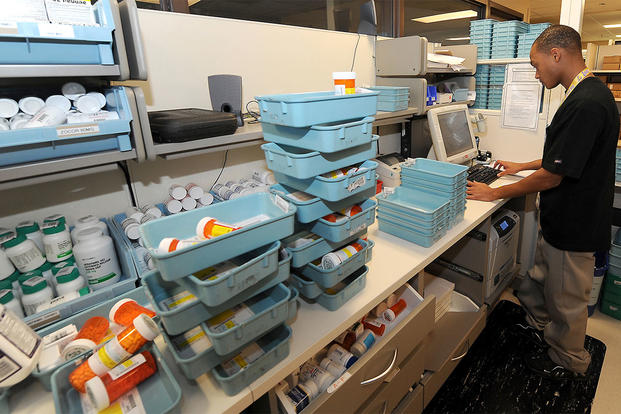Life on and off the battlefield is difficult for veterans. After they serve, they may come back with injuries or post-traumatic stress disorder (PTSD). A doctor may prescribe them medicine to cope, or the veteran may start self-medicating with drugs and alcohol before they seek treatment.
Unfortunately, substance abuse is common in the veterans' community. One study found that a third of the veterans in the U.S. are seeking treatment for PTSD or struggle with substance dependence. Another report from the American Public Health Association revealed that the fatal overdose rate among Veterans Affairs patients is almost double the national average.
Doctors often prescribe opioids for pain management and benzodiazepines for anxiety, both of which are highly addictive. Veterans who have a track record with addiction may be hesitant about taking these and should seek alternatives.
Coping with injury and illness with drugs
If veterans see a doctor for their PTSD, injuries or any other kind of illness, they must disclose their history of addiction with their healthcare providers. Pain management pills might be necessary after surgery, but only temporarily. In that case, the doctor may recommend that the veterans find trusted caregivers to give them their pills until the prescribed dosages run out.
If the veterans have PTSD, anxiety or depression, they should specifically request non-habit-forming medication to protect themselves from becoming addicted.
Finding alternative ways to heal
Pills may not be crucial to the healing process for veterans. They can also ask their therapists and doctors about alternative treatments like acupuncture, Mindfulness-Based Stress Reduction (MBSR) and physical therapy.
In addition, Eye Movement Desensitization Regime (EMDR), Somatic Experiencing (trauma-informed therapy) and yoga are effective when it comes to reducing symptoms of phobias, anxiety, depression and PTSD.
It's always helpful for veterans to stay active in sober communities as well because there is evidence that being in these environments may improve global health and reduce addictive cravings. There was a series of experiments done called “The Rat Park,” in which scientists gave rats access to morphine-laced water in isolation and regular clean water in a large community. When surrounded by other rats, previously addicted rats chose the latter.
The implication of these experiments supports the idea that connection and engagement in a healthy community can promote physical and psychological health.
Recognizing the signs of addiction
If a veteran is taking pills to treat PTSD or injuries, he or she may already be experiencing addictive behaviors. The signs of addiction include:
- Tolerance. The prescribed dose no longer has the same effect, and the veteran is increasing the amount needed to get the same effects of the past.
- Preoccupation. The veteran shows a growing interest in the amount of medication left and the time it will take to refill a prescription, and is expressing anxiety around the idea of not having access to medication.
- Withdrawal. The veteran has feelings of irritability, restlessness, flu-like symptoms, anxiety and confusion after the effects of prescription medicines wear off.
- Behavioral signs. The veteran has impaired memory, slurred speech, dilated pupils, feelings of depression, changes in sleeping and eating patterns, headaches, dizziness, poor decision-making skills and a lack of energy. They show irritability, aggression and clumsiness. They withdraw from family, friends and their social circle.
Recovering in a healthy way
For vets in recovery, it is important to remember that asking for help with psychological and/or physical pain is a sign of strength, not weakness. Veterans need to let go of the old, dysfunctional idea that “real men and women” don't ask for help with their feelings.
They should also keep in mind the mnemonic device “H.O.W.” while recovering:
- They should be HONEST with themselves about whether they need addictive medicines to address physical pain
- OPEN-MINDED about alternative, non-addictive approaches to pain management and psychological distress
- And WILLING to try new, non-addictive approaches to wellness.
Then, they will be on the road to a successful recovery.
Dr. Rod Amiri specializes in addiction psychiatry. He is a diplomate of the American Board of Psychiatry and Neurology and the American Board of Addiction Medicine. He has received the Patients' Choice award every year since 2008, representing less than 5 percent of active physicians in the United States. He serves patients and families at Prominence Treatment Center, a luxury rehab facility located in Calabasas, California.









